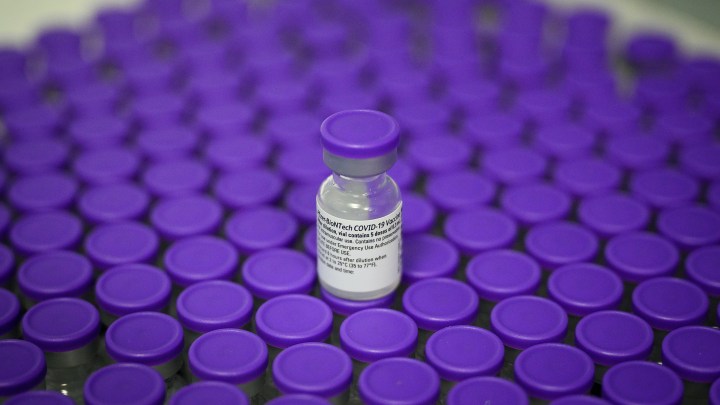
Time for U.S. to share more COVID vaccines?

Oxford University and AstraZeneca announced Monday that their COVID-19 vaccine is 79% effective overall and 100% effective at preventing severe disease, according to preliminary results from U.S. clinical trials.
The Biden administration said last week that it will send about 4 million doses of the vaccine to Canada and Mexico, but it’s holding on to several million more, even though the AstraZeneca vaccine is not yet authorized in the U.S. and the administration has already secured more than enough doses of COVID vaccine for everyone in the country.
“Supply is going to exceed demand sometime in the midsummer, late summer,” said Dr. Ezekiel Emanuel, vice provost of global initiatives at the University of Pennsylvania, who advised President Joe Biden during the transition of power. “We should be pretty aggressive about sending the vaccine overseas to help other countries that are in need.”
China, which has largely controlled the disease, is sending more than half of its doses to other countries, and Russia is also exporting vaccine.
“We could do the same,” Emanuel said. “It would make a big ‘soft power’ difference in terms of foreign affairs to these countries, rather than making us look like Scrooge. And I think that’s very important from an ethical standpoint, very important from an international diplomatic standpoint.”
Because most countries don’t have the capacity to produce a vaccine on their own, it’s also the only way to get the pandemic under control globally.
“In a world where COVID is running rampant across the world and not in the United States, unless we’re going to be a fortress nation that’s not going to let anybody travel here ever, you’re going to have variants emerge elsewhere in the world, in such a way that they pose a danger to the United States,” said Glenn Cohen, a professor of health law and bioethics at Harvard Law School.
Both healthwise and economically.
“If we’re living in a world where large parts of the world don’t get fully vaccinated until 2022 or 2023, those are people who can’t travel to our shores. There are people who will not be able to consume our goods. There are people who will be in situations of political instability and suffering, and there’s going to be major economic loss,” Cohen said.
And the U.S. is now in a position to do something about that — by both sharing what it has and pushing drug companies to ramp up production even more.
There’s a lot happening in the world. Through it all, Marketplace is here for you.
You rely on Marketplace to break down the world’s events and tell you how it affects you in a fact-based, approachable way. We rely on your financial support to keep making that possible.
Your donation today powers the independent journalism that you rely on. For just $5/month, you can help sustain Marketplace so we can keep reporting on the things that matter to you.


















